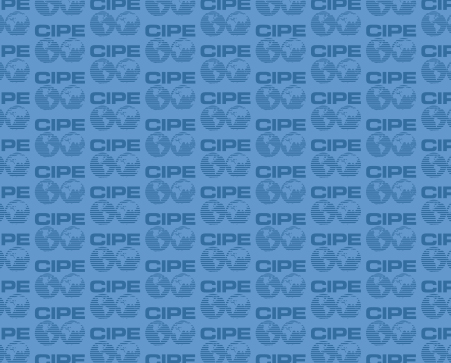
There’s a Margaret Thatcher quotation I like to recall: “Being powerful is like being a lady. If you have to tell people that you are, you aren’t.” Indeed, I think that is why so many people, women included, do not like discussing women’s unequal participation and representation in the public and private sectors. Perhaps women feel that if they talk about it, they are admitting that they are inferior.
On the contrary, I think that discussing the reasons behind women’s unequal participation, or their untapped potential, is one step towards understanding those barriers and then figuring out how to work around them or break them down. If you look at the numbers, this is a real problem. There are too many barriers in our culture and as a result, in our own prejudices.
The experience of being part of the Democracy that Delivers for Women conference last summer has been a truly enlightening experience and great inspiration for me personally to invest my energy and time in this still vulnerable area of women’s participation. Since the conference, I have become sort of an ambassador for this issue among my colleagues and friends by using different types of communication tools to promote ideas shared during our discussions throughout the event.
As we continue talking about women’s empowerment, more people become engaged. Interestingly enough, part of the positive publicity for the Democracy that Delivers for Women conference agenda came from a source I did not expect: Facebook. Following the event, an impressive number of my younger female friends and colleagues have circulated a video of my remarks at the conference, and have shared the link with the broader public. Before I realized what was happening, I already had many Facebook “likes.” I assume that at least some of the invitations that followed to take part in gender related discussions after Democracy that Delivers for Women came as a result of this unintended ‘”popularity” gained through Facebook.
Within my organization, the Serbian Association of Managers (SAM), I have noticed that the number of female members has increased in the last six months so that women are a much larger percentage of our membership than they were previously. This, in my view favorable trend, especially given the male/female disparity in the past, and is probably a consequence of the growing perception that SAM is interested in attracting female business leaders and acting as a discussion platform for variety of issues arising from this image.
At this moment we are seriously considering dedicating one of the panels at the upcoming regional event, “Summit 100 Business Leaders from Southeast Europe,” to the topic of women’s empowerment in the context of regional economic growth and strengthening ties among businesses.
By giving more attention to the significance of women’s participation, we’re working towards a world where some day women will participate on equal grounds as men – and we won’t have to worry about discussing it any longer. However, to get to this point in a reasonable time frame, and to put up the speed of enabling this ‘paradigm shift’, I believe it is of critical importance HOW we frame this discussion, HOW we position ourselves as messengers, HOW we engage more and more men in the dialogue and thus turn them into champions of this process. As long as the ownership of this craving for change resides within the closed circle of women (regardless how wise and influential) talking passionately to the group of like-minded women, the mindset will remain unchanged.
I will stop here with the promise to write next time about this aspect of women empowerment: the need to engage more men and turn them into champions of the new way of thinking on this issue.
Maja Piscevic is the Executive Director of the Serbian Association of Managers and President of the Managing Board. She attended the Democracy That Delivers for Women conference in Washington, DC, on June 20-21, 2011.
Published Date: March 08, 2012
